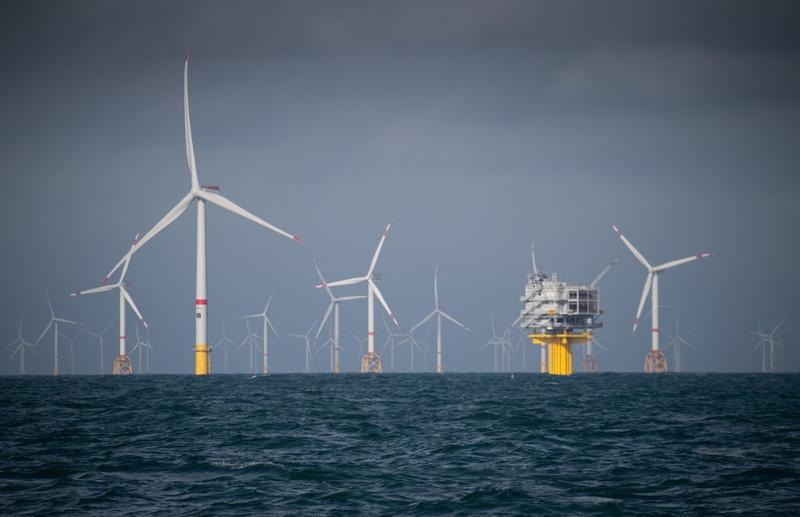 This Oct 25, 2019, photo shows several wind turbines and an offshore platform built by the ENECO consortium off Ostend on the Belgian coast. (Eric Feferberg / AFP)
This Oct 25, 2019, photo shows several wind turbines and an offshore platform built by the ENECO consortium off Ostend on the Belgian coast. (Eric Feferberg / AFP)
BRUSSELS - Europe’s shift from fossil fuel-based electricity to renewable sources has reduced environmental problems while also cutting the greenhouse gas emissions causing climate change, the European Environment Agency (EEA) said on Monday.
Renewable power generation in the EU has nearly doubled since 2005, producing 34% of EU electricity in 2019 compared with the 38% produced by fossil fuels like coal and gas
Renewable power generation in the European Union has nearly doubled since 2005, producing 34 percent of EU electricity in 2019 compared with the 38 percent produced by fossil fuels like coal and gas.
The EU’s switch from fossil fuel-based power production to sources like wind and solar since 2005 has “significantly decreased” emissions, while also yielding “clear improvements” in key environmental problems, the EEA - an EU agency - said in a study.
These include soil acidification, eutrophication - where freshwater becomes overloaded with nutrients, causing algal blooms and low oxygen levels - and the formation of particulate matter, a type of air pollution linked to 379,000 deaths in Europe in 2018.
ALSO READ: UN chief wants worldwide 'state of climate emergency’
“By substituting more polluting fossil fuels, expanding renewable electricity generation across the EU provides multiple opportunities to improve human health and the environment while mitigating climate change,” the EEA said.
The agency studied 16 power generation methods, of which coal, natural gas and oil had the biggest life-cycle impacts on the environment.
“Coal generation has by far the highest impact intensity overall, leading to most impacts across the categories that we looked at and across all years,” EEA energy and environment expert Mihai Tomescu said.


